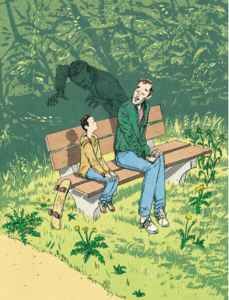Rules: Who Needs Them?

A fair amount of what interests me these days has to do with the experience of aging. So today, I wanted to write about how my thinking about liberty and bureaucracy has changed over the years.
In getting my thoughts together, this quotation, often incorrectly attributed to Winston Churchill, popped into my mind:
“If you’re not a liberal when you’re 25, you have no heart. If you’re not a conservative by the time you’re 35, you have no brain.”
And then, of course, that sentimental biblical phrase (Corinthians 13:11) came to mind:
“When I was a child, I spoke like a child, I thought like a child, I reasoned like a child. When I became a man, I gave up childish ways.”
Never mind.
When my partners and I began developing Rancho Santana 25 years ago, we imagined we were creating a sort of Libertarian Eden, a retreat from the encroaching big-government bureaucracy and petty tyranny of North America. Thus, when it came to creating rules for our fledgling community, our stance was: “The fewer the better.”
That policy worked for a while. We allowed lot owners to do whatever they wanted to do with their lots. They could regrade them, deforest them, drill wells in them, erect cell towers and windmills on them. Anything.
This worked until it didn’t. We discovered that many of our Libertarian-minded settlers didn’t always appreciate the amount of freedom the community afforded. A windmill can be an admirable idea. But when it’s blocking your neighbor’s view of the ocean, and sounding like a jet plane taking off, it becomes an invasion of and an assault on his liberty.
So, complaint by complaint, and despite our reservations, we were forced to establish more and more regulations and restrictions. I was reminded me of this when, at a recent meeting of the resort’s board, we found ourselves dealing with yet another complaint. In this case, it had to do with a new resident that had bought a house that had some pest problems. “You guys should have building codes that have the same standards as we have back in California,” he said.
“Oh, boy,” I thought. “This will never stop until we’ve made our haven as bureaucratic as any and all of the towns and cities we fled from in the States.”
And we are not the only example of this. A friend of ours, a bestselling author, developed his own version of our residential community in Argentina about ten years after we started Rancho Santana. When it comes to Libertarianism, he’s about as hardcore as it gets. And yet, the last time I visited his resort, their book of homeowner association bylaws looked to be even thicker than ours!
What’s the point?
The point: It’s easy to be a Libertarian or a Marxist or an anarchist when you are young and unburdened with responsibility. But as you grow older and take on the responsibilities of adulthood, those glittering ideologies become impossible to keep.
Except, of course, if you are a hypocrite — i.e., you make your living as a university professor, a politician, or a book and essay writer (like me)!
 MarkFord
MarkFord












